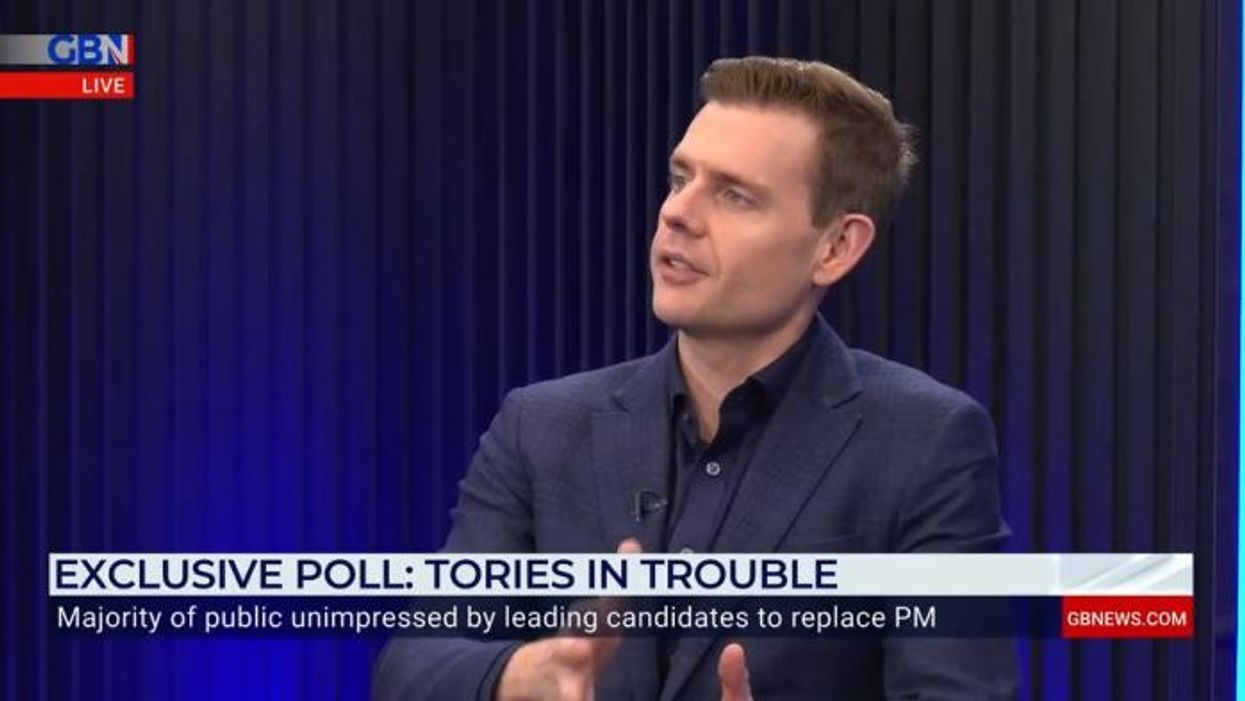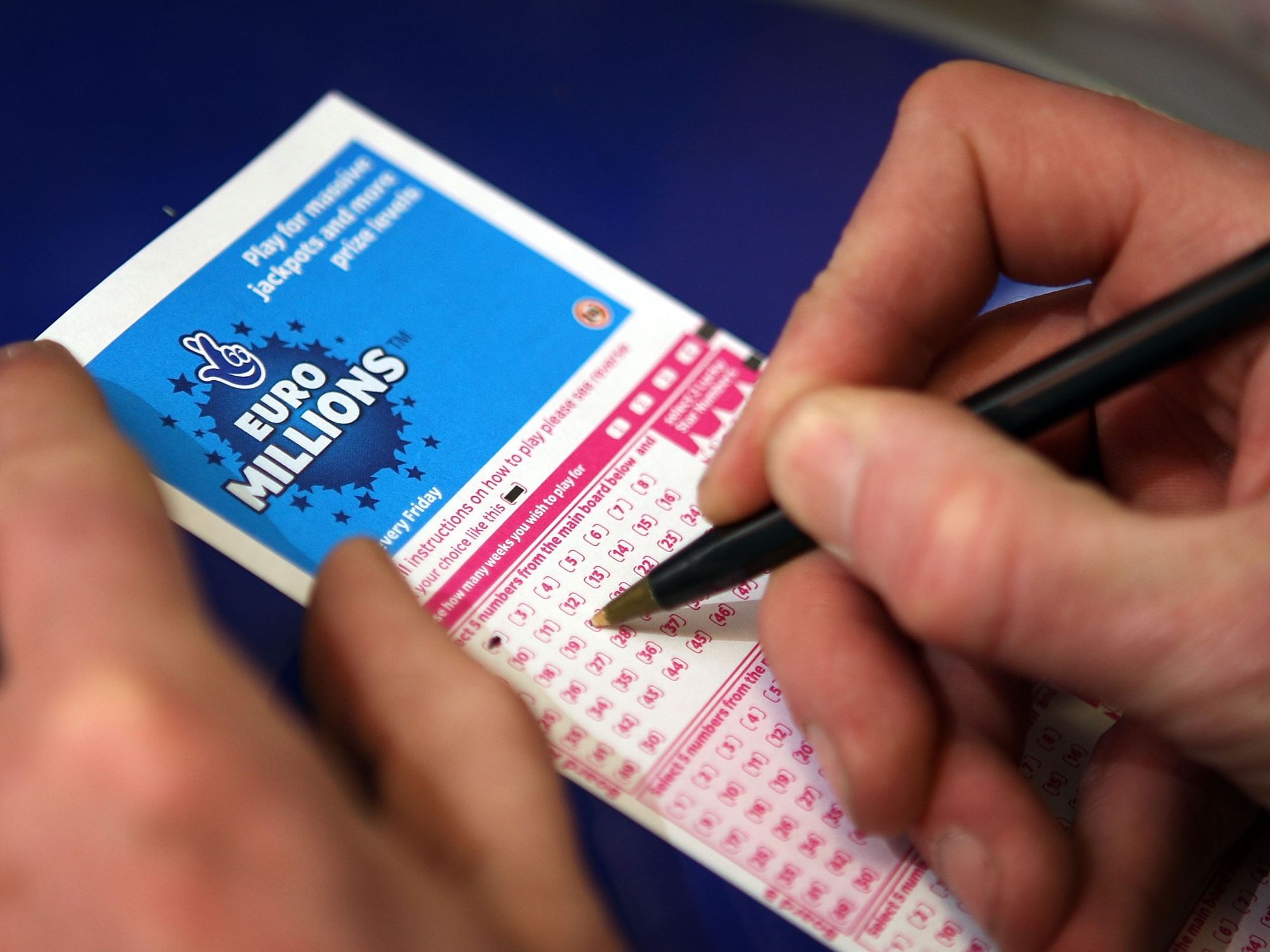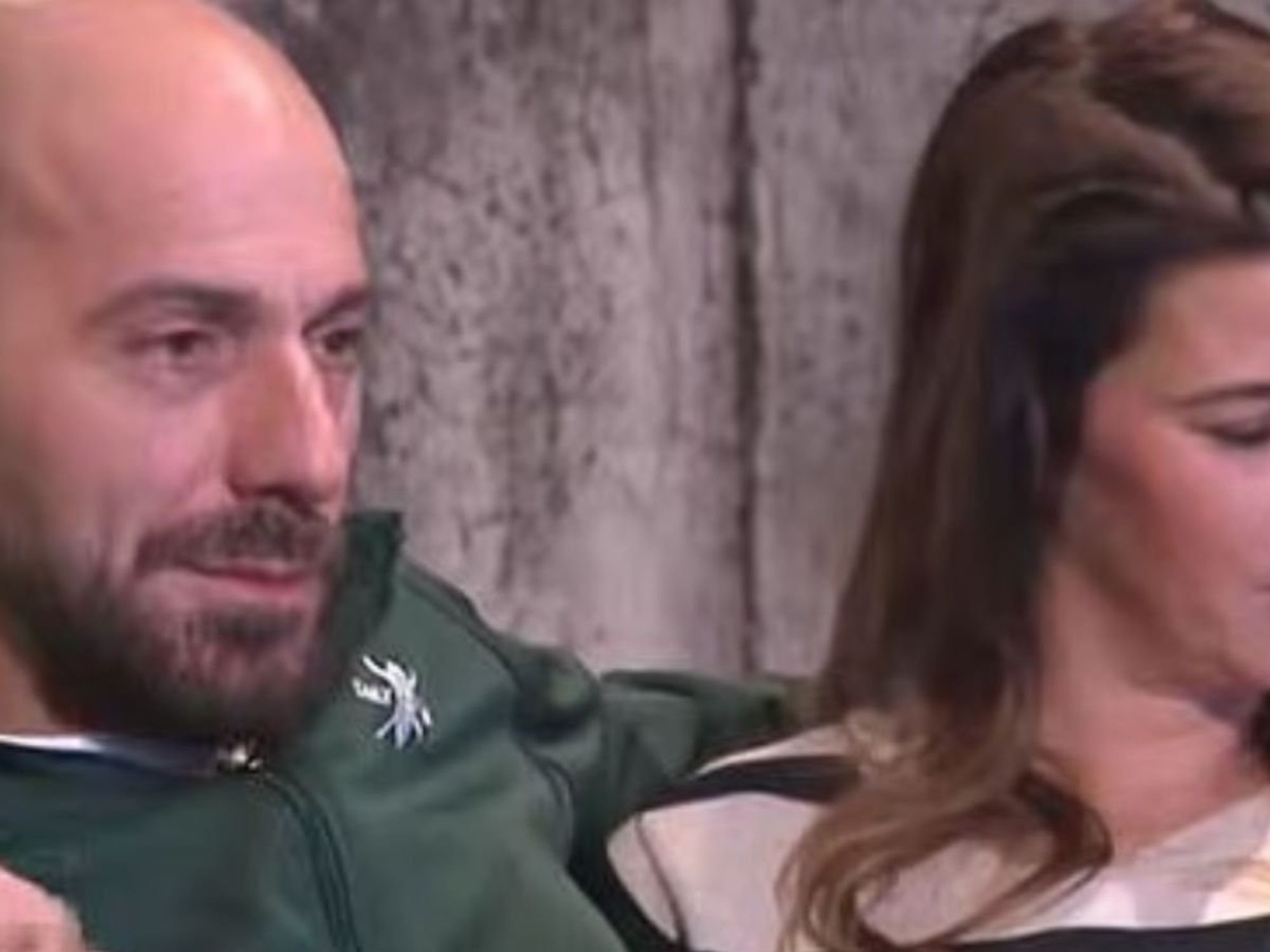The moment it REALLY all started going wrong for Sunak and what caused it - analysis by Tom Harwood

Don't Miss
Most Read
This week’s polls have been dire for Rishi Sunak’s Conservative Party. Multiple pollsters have now tracked the self styled natural party of government falling back below its Liz Truss incited polling nadir.
Yet this is not a sudden drop. Close observers will notice at most simple two distinct phases in Tory polling since the defenestration of the previous Prime Minister.
First, a polling recovery. A narrative built in the first six months of Sunak’s premiership: he was slowly but surely building back the age old Conservative reputation for good governance, stability, and sound finances.
Labour’s sky high ratings drifted down from their absurd highs of by some measures near 60 per cent (numbers even surpassing the peak pandemic status of the Tory Party), and the Conservatives eked back up.
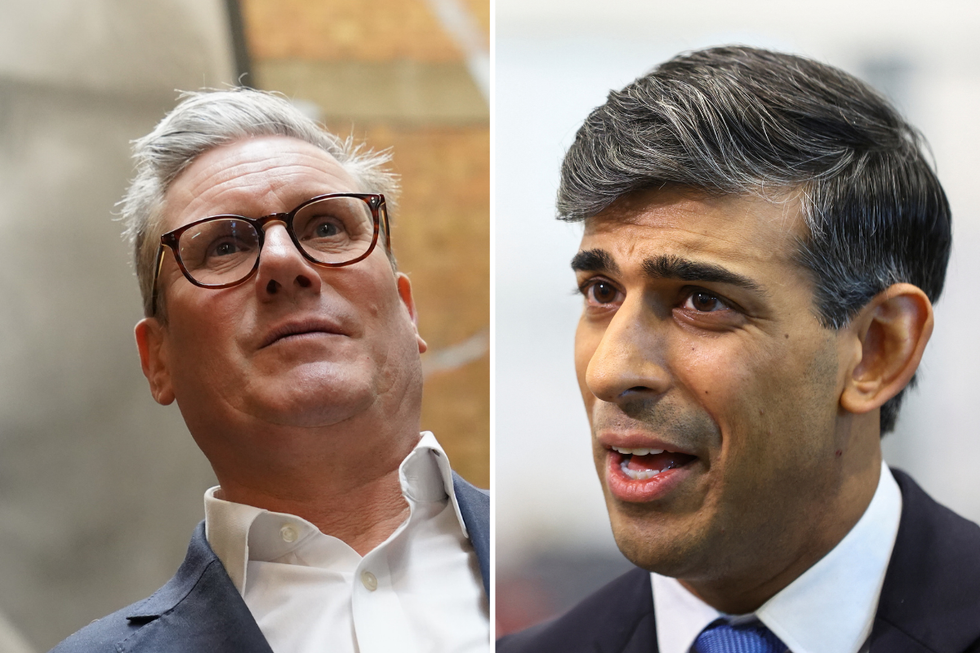
Tom Harwood claims that once Starmer started winning and Sunak started losing, the public's opinion started to shift
|PA
Until May 2023. Looking at a graph of national opinion poll averages, it is clear there is a peak at the end of April 2023 that is never again matched.
And a second phase of bumpy but gradual deflation back down to the low of October 2022.
But what could be behind these two phases of Rishi Sunak’s tenure in Number 10?
There is a precipitated drop upon the sacking of Suella Braverman in November 2023, but only after the decline began.
This is the incident that perhaps kickstarts the rise of Reform UK, from level pegging with the Greens to today’s widely considered third place poll position ahead of the Lib Dems.
But to look for the start of the decline we have to look to the end of the peak - May 2023. The local elections.
LATEST DEVELOPMENTS:
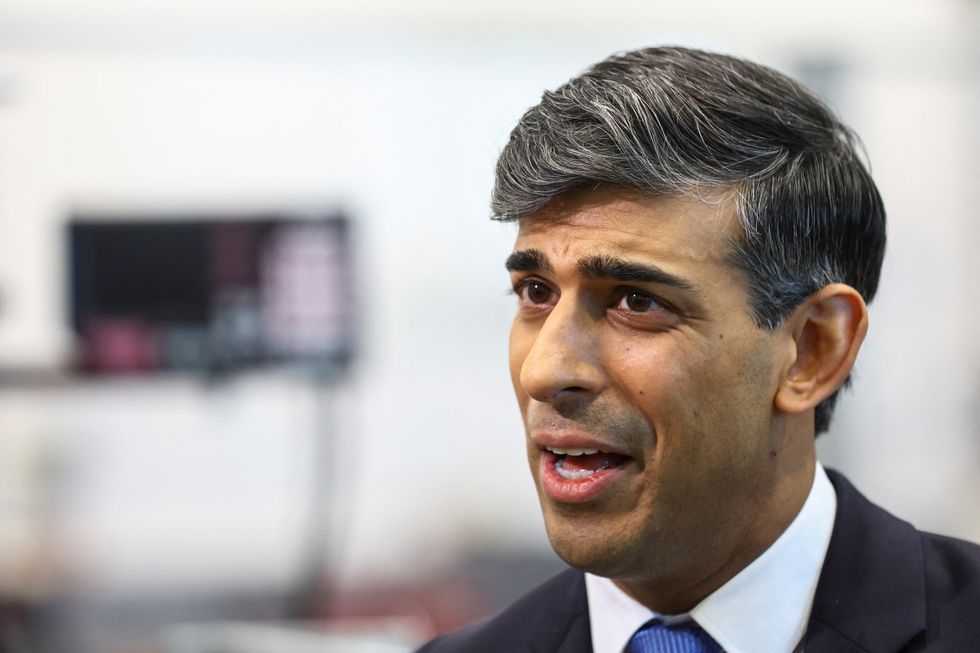
The devastating loss of over 1,000 councillors and 48 councils changed the mood music
|PA
Up until this point the narrative was clear: rebuild confidence, rebuild trust, rebuild support. And it appeared to be working until it slammed into electoral reality.
There is a phrase in politics known as “strong horse theory”. Simply put: winning begets winning, and losing begets losing. Voters are more likely to want to back someone who looks like a winner, and think less of a candidate who looks like a winner.
The theory gets its name from a phrase coined by Osama Bin Laden, who wrote in the context of Arab politics and violence that “when people see a strong horse and a weak horse, by nature they will like the strong horse.”
The theory in a Western context was popularised online in 2020 in the wake of Jeremy Corbyn’s 2019 election loss banishing his previously popular ideas from the political mainstream.
Suddenly ideas that had entered the so called ‘Overton window’ of political acceptability were dropped by half hearted supporters, as they appeared unpopular.
The Strong Horse Theory does not just apply to ideas however, it applies to candidates themselves. It was Donald Trump continually winning amongst Republican primary voters that made him more attractive to independents.
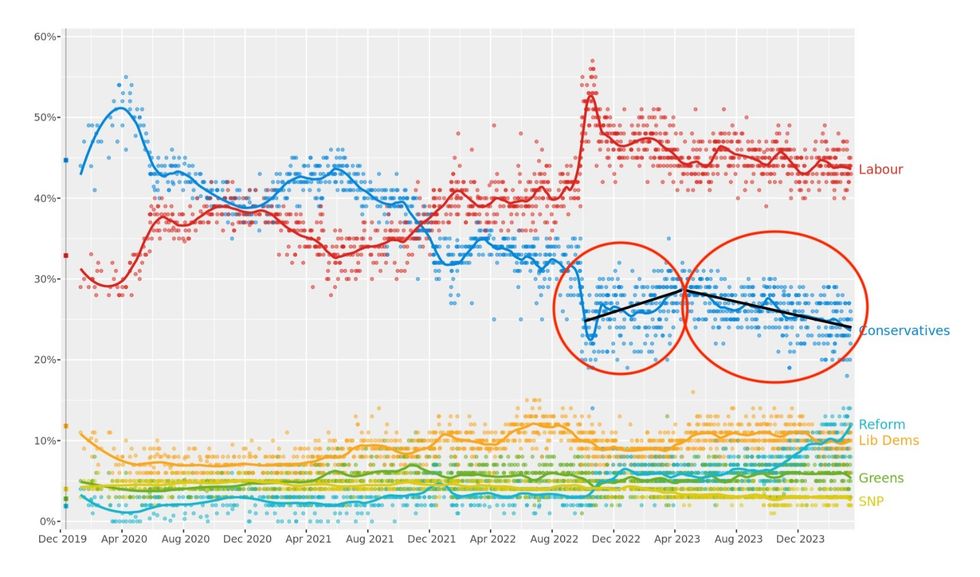
A graph showing the moment it all started going wrong for the Tories
|WikiCommons
The fact of his winning contests (even those with a limited and partisan franchise) increased his political acceptability and the vibe of his candidacy as a strong one.
Similarly, Keir Starmer was not taken seriously as an alternative Prime Minister until real world electoral successes began to materialise. And as soon as he started to win the strong horse snowball effect gathered pace.
In parallel, Rishi Sunak was seen as a competent safe pair of hands, until he started to lose in the real world.
The devastating loss of over 1,000 councillors and 48 councils changed the mood music. Suddenly a narrative of rebuilding turned to one of losses. And slowly this chipped away at confidence, composure, and an image of competence.
It wasn’t a sharp immediate crash, more the beginning of a slow puncture. Sowing the seeds of further losses, ill discipline, and the losing that begets losing.
In politics, sometimes you just need to be seen as a winner to become one.


